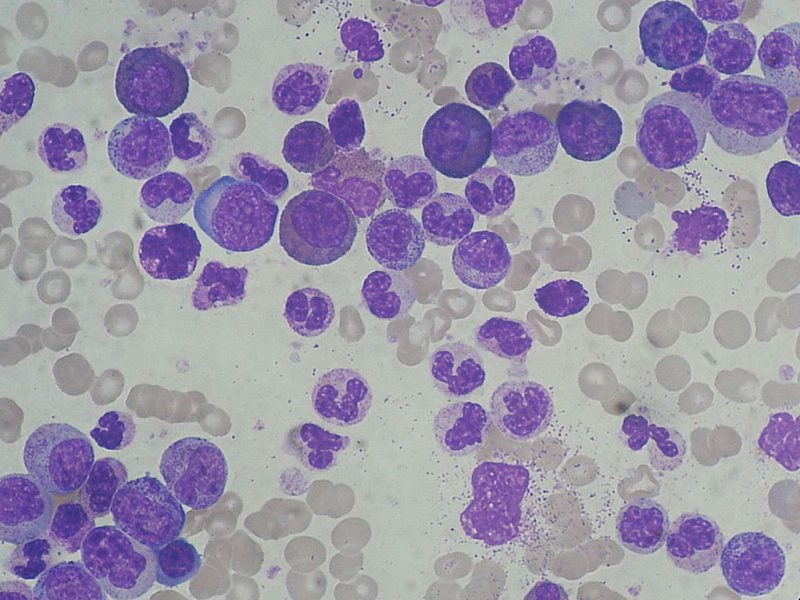
Novartis has reported positive results from the Phase III ASCEMBL clinical trial of asciminib in adults with Philadelphia chromosome-positive chronic myeloid leukemia in chronic phase (Ph+ CML-CP).
Asciminib is designed to selectively target the ABL myristoyl pocket (STAMP). It is intended to address tyrosine-kinase inhibitor (TKI)-resistance and intolerance in later treatment lines of CML.

Discover B2B Marketing That Performs
Combine business intelligence and editorial excellence to reach engaged professionals across 36 leading media platforms.
The drug is undergoing multiple studies as a potential CML treatment.
ASCEMBL is a multi-center, open-label, randomised study that compared the drug to bosutinib in patients who previously received treatment with two or more tyrosine-kinase inhibitors (TKIs).
The trial included patients with failure or intolerance to the most recently used TKI therapy.
It met its primary endpoint of statistically significant superiority in major molecular response (MMR) rate at 24 weeks with asciminib compared to bosutinib.

US Tariffs are shifting - will you react or anticipate?
Don’t let policy changes catch you off guard. Stay proactive with real-time data and expert analysis.
By GlobalDataNovartis Global Drug Development head and chief medical officer John Tsai said: “Our ability to treat patients with TKIs changed CML care forever. However, the risk of disease progression is a reality for many patients, especially those who experience resistance to sequential TKI therapy or those who cannot adhere to treatment due to the daily impact of intolerable side effects.
“These results with asciminib are a testament to our commitment to further transform CML care, this time through STAMP inhibition, by exploiting a natural regulatory mechanism of the ABL kinase.”
The company will submit the ASCEMBL trial results to regulatory authorities. The US Food and Drug Administration (FDA) previously granted fast track designation to asciminib.
Novartis recently said that the Phase III COMBI-i clinical trial of spartalizumab (PDR001) in combination with Tafinlar (dabrafenib) and Mekinist (trametinib) missed the primary endpoint in cutaneous melanoma patients.
Spartalizumab is an experimental monoclonal antibody that targets the human programmed death-1 (PD-1) receptor. It is being developed as a immunotherapy to treat various tumour types.





